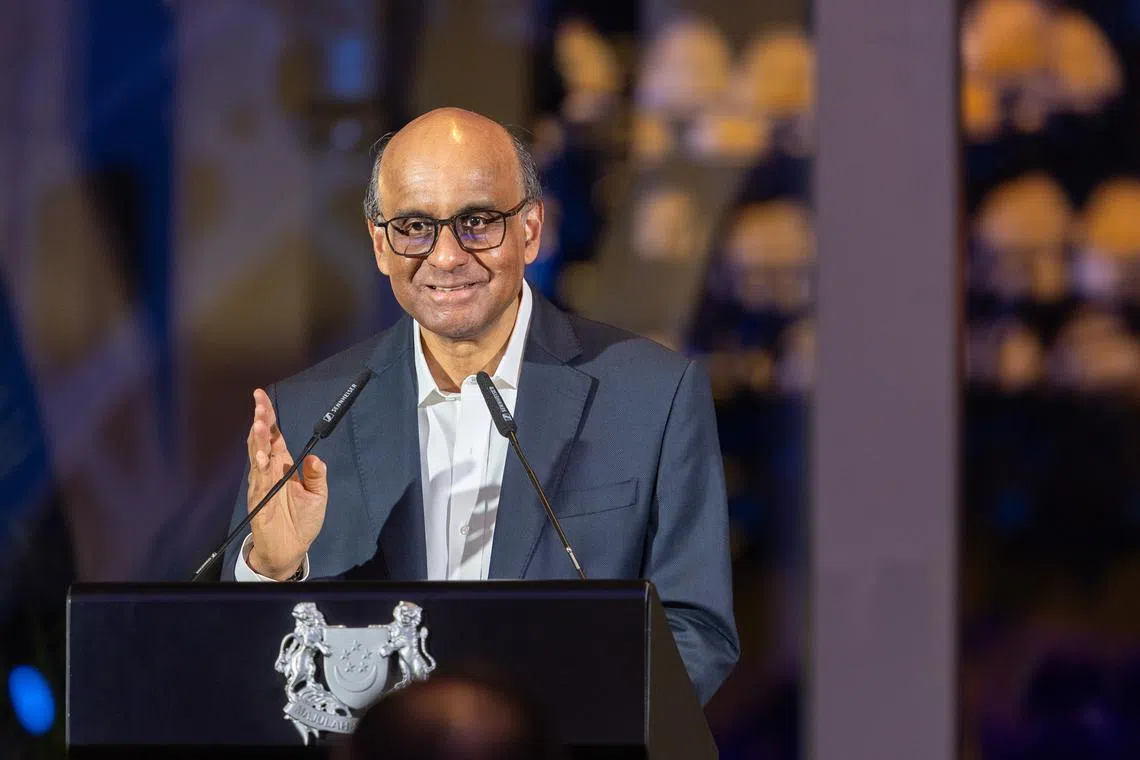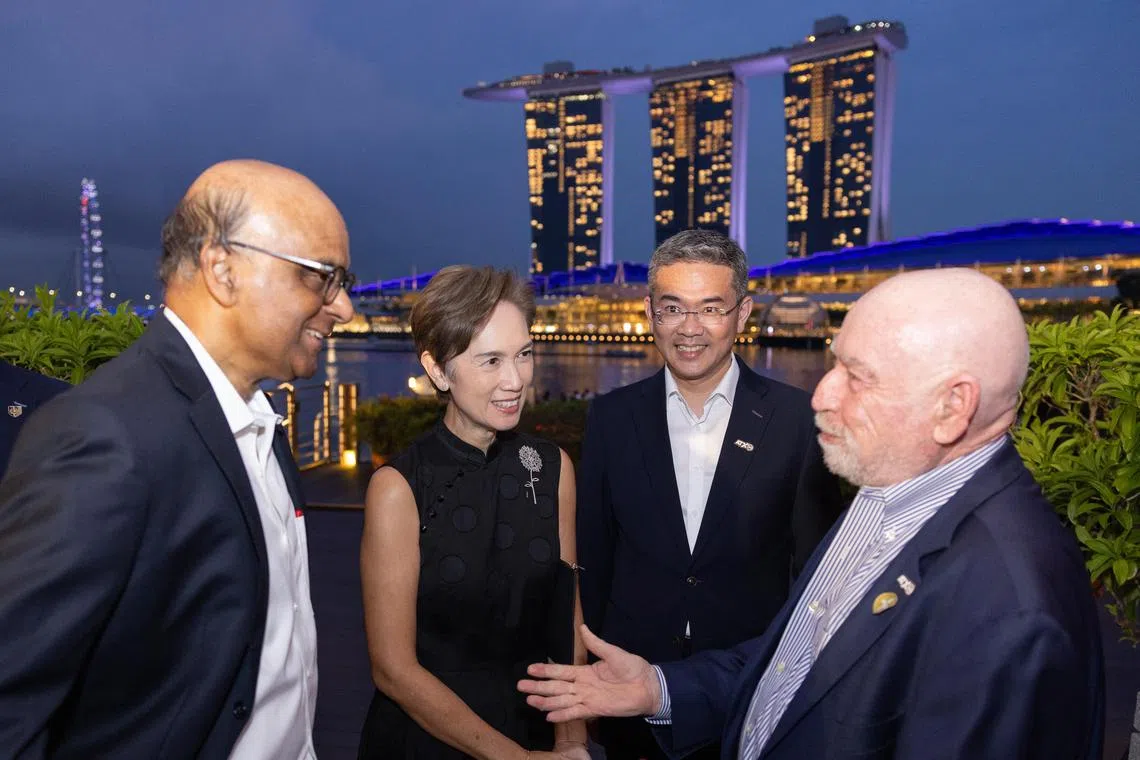Use AI to keep jobs, boost healthcare, curb climate change to maximise good: President Tharman
Sign up now: Get ST's newsletters delivered to your inbox

President Tharman Shanmugaratnam speaking at the opening gala for Singapore’s 5th annual tech conference Asia Tech x Singapore on May 27.
ST PHOTO: BRIAN TEO
Follow topic:
SINGAPORE - Artificial intelligence (AI) can enable displaced workers to find new meaningful jobs in other sectors after their previous jobs are disrupted by rapid technological developments, said President Tharman Shanmugaratnam.
Speaking at the opening gala for the fifth Asia Tech x Singapore annual tech conference on May 27, Mr Tharman noted the need for systematic training involving governments and the industry to level up displaced workers’ skills.
“If there are some people displaced in one sector because of creative disruption, how do they get deployed, not just into flipping burgers, but into new jobs in other sectors,” said Mr Tharman, urging the audience to think about productivity more broadly.
“It’s productivity for the workforce at large... to maximise our potential to create good jobs for everyone who wishes to be in the workforce,” he said.
Speaking at The Fullerton Bay Hotel, Mr Tharman said that AI is driving productivity in factories, call centres and banks, but the progress is not necessarily translating into more jobs that ensure the workforce is productive.
Productivity for human society is one of three areas he cited where global consensus can be attained to maximise the good of AI, and minimise the risk of AI harms.
In his half-hour speech to policymakers, tech leaders and industry guests, Mr Tharman said the other two areas are in healthcare and climate change.
Specifically, AI can aid in early disease detection and easing pressures on healthcare systems. AI also has the potential to improve energy efficiency to curb climate change.
Organised by the Infocomm Media Development Authority (IMDA), the conference is expected to host 3,500 attendees from around the world who will attend panels and discussions on AI governance and innovation in the technology sector between May 27 and 29. Executives from major tech companies like OpenAI, Microsoft and Google are also scheduled to attend panel discussions that address pressing issues in tech.
Mr Tharman highlighted opportunities where AI can improve healthcare, such as to spot and treat diseases and support healthcare systems.
He said: “We need to take it much, much further and ensure that safety is ensured through regulation of AI in healthcare.”
Tougher regulation is necessary to bring AI’s impact on the healthcare sector further, so that trust in healthcare systems is preserved, said Mr Tharman, citing Singapore’s efforts to introduce guidelines in healthcare for developers and users.
For instance, developers are obliged to gather feedback from clinicians and patients on their apps, to build confidence in using such systems.
Humanity’s fight against climate change, too, stands to gain from AI innovation, even as intensifying AI use requires high amounts of water and energy
AI is key to monitoring the levels of environmental degradation and to improve energy efficiency across the economy, such as to enable more productive food systems so that resources in forests are not depleted unsustainably, said Mr Tharman.
In spite of the advantages that AI can bring, there are risks that society must come together to address.
Mr Tharman said that among the risks is the use of AI-generated content, together with social media platforms and rogue actors, to spread disinformation that can erode trust
Mr Tharman said: “They are forcing people into bubbles and hardening divisions within society... We do not yet have a solution to this but it is a dangerous problem.”
He also warned that AI risks transforming warfare for the worse – an urgent issue that the United States and China, in particular, must discuss to find ways to control the use of AI in war.
To achieve these objectives, industries must start to act sectorally to use AI to address issues within each field, such as to address needs and spur innovation within agriculture, healthcare and climate change, Mr Tharman said.
He suggested developing multilateral governments and coalitions among policymakers, scientists, tech players and civil society who can iron out guidelines and common standards for AI.
Momentum for coalitions in the tech industry is building, said Mr Tharman.

(From left) President Tharman Shanmugaratnam, Minister for Digital Development and Information Josephine Teo, Infocomm Media Development Authority chief executive Lew Chuen Hong and Salesforce chief futures officer Peter Schwartz meeting before the opening gala for the fifth Asia Tech x Singapore annual tech conference at The Fullerton Bay Hotel on May 27.
ST PHOTO: BRIAN TEO
Scientists and members of the global tech sector gathered here for the Singapore Conference on AI in April to discuss the priorities for global AI safety research, which Mr Tharman described as a good example of what it takes to work together.
Mr Tharman said: “We need some form of calibration, of consensus-based guidance. Some way in which coalitions of the willing come together so that we can maximise the good and minimise the risk of the worst. We can’t leave it to the jungle.”


